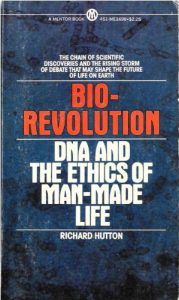Modern biotechnology originated in the mid-1970s with new advances in genetics, immunology, and biochemistry. Biotechnology includes all techniques that use living organisms or substances from organisms to produce or alter a product, cause changes in plants or animals, or develop microorganisms for specific purposes. Biotechnology encompasses several techniques and methods, including genome mapping, gene splicing (or the transfer of one or more genes with certain prospectively useful qualities to plants, domestic animals, fish, and other organisms), and molecular breeding.
Gene editing allows scientists to cut and paste the DNA that makes up human genes with speed and  precision, inside living human cells. It can be used to repair damaged genes and to accelerate research into how genes function. It can also be used to transmit genetic traits to future generations, including through human sperm, eggs and embryos, which is now widely considered unethical.
precision, inside living human cells. It can be used to repair damaged genes and to accelerate research into how genes function. It can also be used to transmit genetic traits to future generations, including through human sperm, eggs and embryos, which is now widely considered unethical.
Learn more about the biotechnology and genetic revolutions with these resources from Ames.
Beyond biotechnology: The barren promise of genetic engineering by Craig Holdrege and Steve Talbott
Life’s greatest secret: The race to crack the genetic code by Matthew Cobb
Genetics & society, edited by Penelope Barker
 Bio-revolution: DNA and the ethics of man-made life, by Richard Hutton
Bio-revolution: DNA and the ethics of man-made life, by Richard Hutton
Didn’t get enough? Check out these videos available through Kanopy.
Biotechnology: Cleaning Up with Microbes – As achievements in engineering and manufacturing move us toward 21st Century lifestyles, problems emerge as a result of these processes. Moreover, cleanup concerns plague us as a legacy of the industrial revolution. This program focuses on an innovative yet natural solution science proposes for the cleanup of polluting by-products. Discover how science is Cleaning Up With Microbes. Throughout the world, scientists are exploring the use of living organisms to help solve the problem of waste disposal and recycling. They have found that microbes–such as bacteria, fungi, and algae can take care of almost any waste by-product by doing what they do best– eating!
Cracking Your Genetic Code – What will it mean when most of us can afford to have the information in our DNA–all three billion chemical letters of it–read, stored, and available for analysis? Cracking Your Genetic Code reveals that we stand on the verge of such a revolution.

One response to “Theme Thursday – Evolution of Revolution”